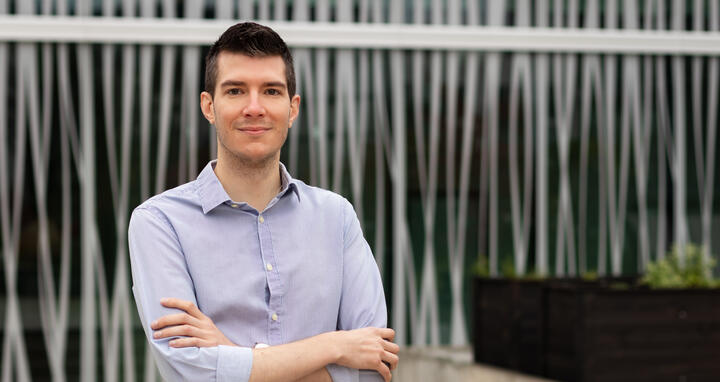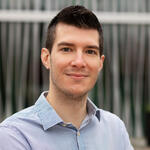Simon Haas receives Heisenberg professorship
Dr. Simon Haas leads a lab within the joint research focus “Single-cell approaches for personalized medicine” of the BIH, Charité – Universitätsmedizin Berlin, and the Max Delbrück Center. His team is seeking to understand interactions between stem cells and immune cells. In a pioneering discovery, he found a previously unknown protective mechanism that prevents blood cancer from developing from stem cells.
Leukemia, a blood cancer, occurs when immature immune cells stop developing but keep dividing and eventually inundate the blood. There, they encounter mature and active immune cells that either recognize and kill the cancer cells or let them escape. While this process occurs regularly in the human body, the complex interplay between defective cells, the immune system, and other factors determines whether emerging cancer cells are eliminated or develop into a malignant cancer. Understanding this interplay is essential for finding new approaches to the treatment and prevention of blood diseases like leukemia.
How cancer and immune cells communicate
Simon Haas, molecular biologist and head of the BIH research group “Blood Cancer, Stem Cells and Precision Medicine,” and his team are investigating precisely this issue. The experts in single-cell analysis are developing the technique further so that it not only produces individual snapshots of cells, but also captures the interactions and communication between the immune cells and cancer cells. Haas and his team are located at the Berlin Institute for Medical Systems Biology of the Max Delbrück Center (MDC-BIMSB), which offers outstanding technical infrastructure for their work.
The scientists want to decode the signals that the cells exchange during their encounter, discerning the stage of development they are currently in and how the binding impacts the cells: Does it activate the immune cell? Does it kill the cancer cell?
“Over the next few years, we plan to further develop and refine our novel technologies – not only to deepen our understanding of cancer pathology, but also to enable these technologies to be used as precision tools in clinical practice,” explains Haas. “We don’t just want to identify cancer cells earlier and more accurately. It’s also about prediction: Which individuals are at risk of developing leukemia and can we ideally prevent it from breaking out?” For this project and his excellent scientific track record, Haas has now been awarded a Heisenberg professorship in systems hematology at the BIH, which will be funded by the DFG.
About Simon Haas
Simon Haas studied molecular cell biology, biochemistry, and molecular biosciences at Heidelberg University, Imperial College London, and the German Cancer Research Center (DKFZ). He received his PhD from DKFZ and Heidelberg University in 2016. Haas conducted research at DKFZ, the Massachusetts Institute of Technology (MIT) and Harvard. In 2000 he moved to Berlin, where he is a group leader at the Berlin Institute of Health at Charité (BIH), Charité – Universitätsmedizin Berlin, and the Berlin Institute for Medical Systems Biology of the Max Delbrück Center (MDC-BIMSB). Haas has received numerous awards and grants, including an ERC Starting Grant, the Otto Schmeil Prize, the Young Investigator Award of the German Stem Cell Network, and the Lisec-Artz Prize.
Further information
- How blood stem cells stay intact for a lifetime
- Focus area “Single cell approaches for personalized medicine”
- About the Heisenberg program
Since 1978, the Heisenberg Program has been part of the funding portfolio of the German Research Foundation (DFG). In addition to Heisenberg fellowships, positions, and rotation positions, the program offers the option of a Heisenberg professorship. Heisenberg professorships enable outstanding researchers to establish themselves as professors at a German university. To this end, the DFG provides funding for a fixed-term professorship (W2 or W3) for a period of up to five years. The host university must make a binding declaration that it will permanently incorporate the Heisenberg professorship into its budget after the end of the DFG funding period if the interim evaluation by the DFG (after three years of funding) and an evaluation carried out by the university during the same period (optional) lead to a positive result.






